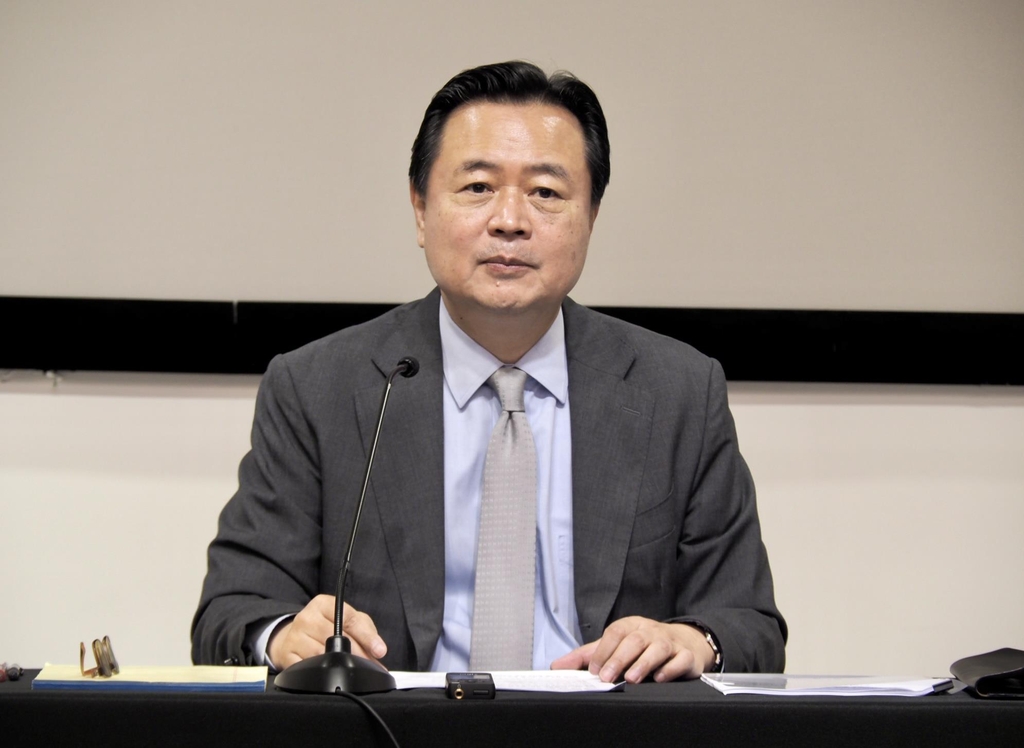- California Assembly OKs highest minimum wage in nation
- S. Korea unveils first graphic cigarette warnings
- US joins with South Korea, Japan in bid to deter North Korea
- LPGA golfer Chun In-gee finally back in action
- S. Korea won’t be top seed in final World Cup qualification round
- US men’s soccer misses 2nd straight Olympics
- US back on track in qualifying with 4-0 win over Guatemala
- High-intensity workout injuries spawn cottage industry
- CDC expands range of Zika mosquitoes into parts of Northeast
- Who knew? ‘The Walking Dead’ is helping families connect
Seoul, Washington moving to hold inaugural meeting of Nuclear Consultative Group: ambassador
South Korea and the United States are working to hold their inaugural meeting of the new Nuclear Consultative Group (NCG), South Korea’s ambassador to the U.S. Cho Hyun-dong said Wednesday.
Cho also said the allies have made “progress” toward holding the first meeting of the consultative body created under the Washington Declaration, signed by their leaders in late April.
“With North Korea’s threat actually materializing, the discussion for the inaugural meeting of the NCG proposed by South Korea and the U.S. through the Washington Declaration is making progress,” the South Korean diplomat said while meeting with reporters here.

“South Korea and the U.S. are especially sharing their information and discussing countermeasures at every level since North Korea declared a second launch of a space launch vehicle following its failed launch of a reconnaissance satellite in May,” Cho added.
The Washington Declaration was signed by President Yoon Suk Yeol and U.S. President Joe Biden during their bilateral summit here, in which the U.S. reaffirmed its commitment to providing extended deterrence to South Korea, which refers to its commitment to using all its military capabilities, including nuclear, to help defend its ally.
Seoul officials earlier said the first NCG meeting may be held as early as this month.
U.S. officials have said the NCG will allow Seoul to provide some input into how the U.S. should plan, manage or even execute its nuclear deterrence when dealing with the nuclear threat posed by North Korea.
Cho said the allies are holding close discussions around the clock on not only security issues but all major global issues.
“Strategic discussions and consultations are held constantly between the countries amid fast changing global conditions,” he said.
“The embassy is constantly holding close discussions with the U.S. National Security Council and the Department of State nearly 24-7 on week days and weekends whenever there is a major event such as the Wagner Group crisis, State Secretary Antony Blinken’s visit to China and North Korea’s continuous threats of provocation,” he added.











